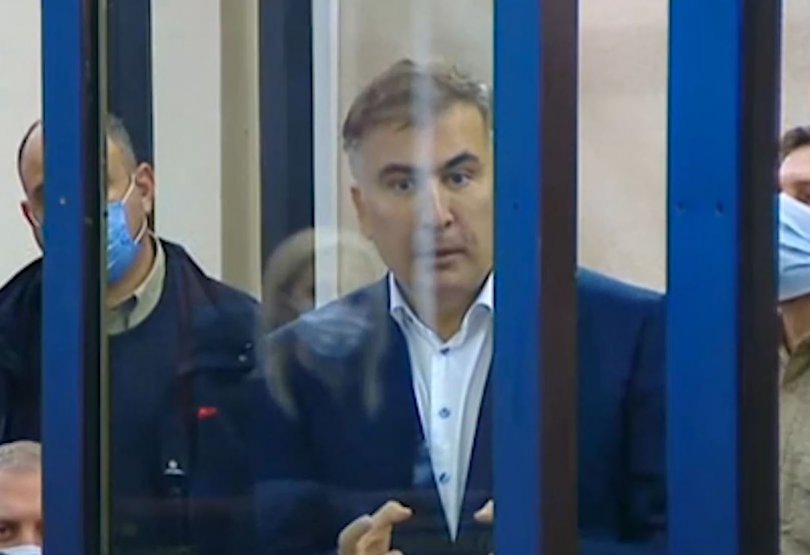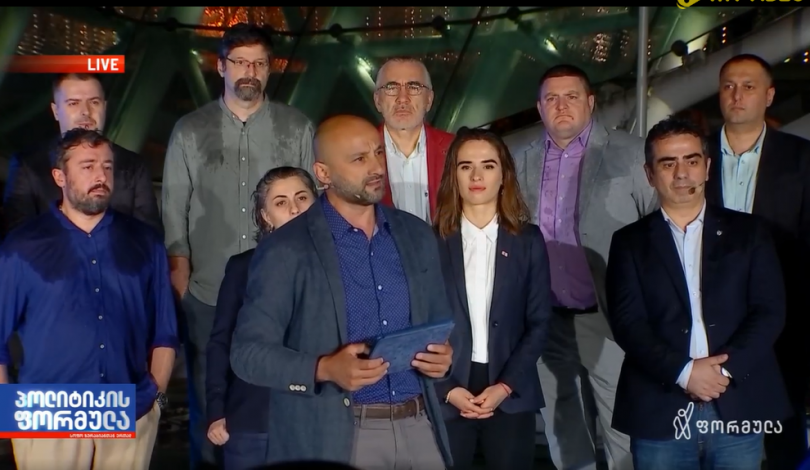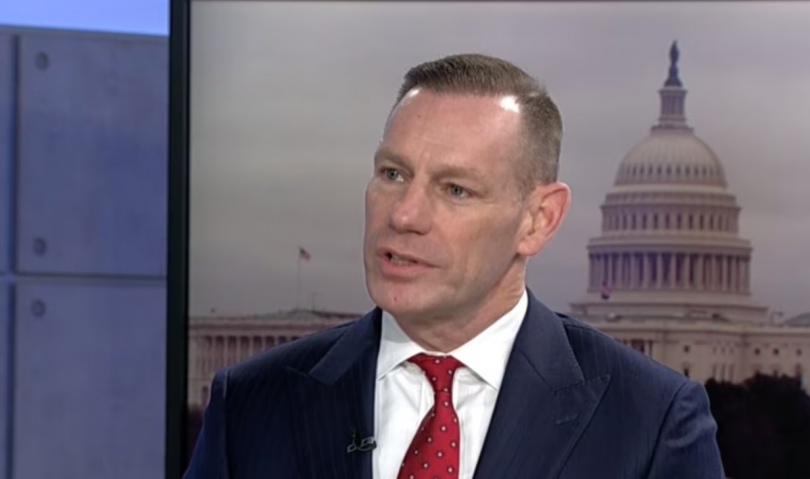
Following a 50-day hunger strike drama, Georgia’s imprisoned third president Mikheil Saakashvili made first appearance in court.
Apology for leaving behind a politicized judiciary became a hallmark of Saakashvili’s 1.2-hour speech that prosecutors tried to interrupt several times.
“Did I make mistakes? More than enough. Many mistakes that I bitterly regret. First and foremost, my mistake is this court. That we failed to create an independent judiciary harmed our many. Now it is harming me and I apologize to everyone who was harmed,” he said.
While touching upon many political issues, Saakashvili also responded in detail to charges Georgian Dream Government brought against him soon after he left Georgia stressing that their single purpose is to prevent his full-fledged participation in Georgia’s political process.
One charge relates to a 2009 pardon of former Interior Ministry officers who had been convicted for a high-profile murder of Sandro Girgvliani, a bank clerk, in 2007.
Stressing the murder’s tragic character, Saakashvili said he pardoned hundreds of former officers following the 2008 war with Russia with a presidential amnesty and the individuals of concern were released with preliminary conditional release by two judges one of whom is now trying Saakashvili.
The prosecution alleges that Saakashvili abused his presidential power of pardon to relive those implicated in the murder of the responsibility.
In another case the authorities alleged that in 2006 Saakashvili ordered beating of the then opposition MP Valeri Gelashvili.
Saakashvili case the entire case lacks evidence and is based on hearsay.
They key testimony upon which the entire case rests, he said, “is a classic hearsay, which means I heard he heard, he heard… This is a testimony based on which I am convicted. In no country in the world would a fair court accept this as evidence,” Saakashvili said.
The former Georgian President also stressed the fact that the Georgian court cases were dismissed by the Interpol which refused to put him on any kind of international warrant list proves their political nature.
“I myself spoke with the Deputy Chief of Interpol who said that the Georgian prosecution is a shame,” he said.
The third case against Saakashvili involves abusing power during dispersal of an anti-government protests on November 7, 2007 and the subsequent seizure of the then opposition Imedi TV.
In a lengthy reflection Saakashvili made a point that in a moment when Georgia was trying to get NATO’s Membership Action Plan, the Kremlin and its allies in Georgia – most prominently the then powerful oligarch Badri Patarkatsishvili, the owner of TV Imedi who died in 2008 – attempted to undermine that effort by manipulating legitimate grievances over radical and far-reaching reforms.
“I am far from the idea that all individuals who were in the street were dancing the Russian tune or knew about Patarkatsishvili’s plans. This was a difficult period in the sense that we had carried out painful reforms. Tens of thousands of policemen were left unemployed. Many people could not reorient themselves on new rails. Inflation was very high. Some people had higher income and some got impoverished. People had an objective possibility to be angry on us,” he said.
Citing Alexander Lukashenko as a main source of information, Saakashvili claimed that the Russian Government had used Minsk for coordinating efforts to undermine the Rose Revolution Government jointly with Mr Patarkatsishvili and his allies in Georgia “with participation of several FSB generals.”
He said he had given no particular instructions when the Police decided to disperse the protesters.
“They [the Police] carried out their duty as they understood it and according to whatever experience our police – which was very inexperienced at that point – had,” he said.
“After that I resigned and reduced my presidential term and ran in a new election which I won with difficulty. Why did I do that? In order to thwart Russia's plans and because these rallies and speeches should not have derailed from NATO," he concluded.
Former Georgian President Mikheil Saakashvili was arrested on October 1 after returning to Georgia from Ukraine.
Saakashvili was on hunger strike for 50 days and is now undergoing rehabilitation in the Gori Military Hospital.
Next court hearing is scheduled for December 23.




